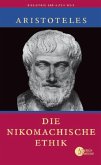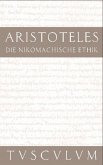Greek thought represents the very beginnings of European philosophy and has determined the theoretical structures of our philosophical and scientific thinking to this day. The focus of this study is on the complementary conceptual systems of Plato and Aristotle. The author examines the evolution of philosophical and scientific ways of thinking from both historical and systemic perspectives.
Das griechische Denken stellt nicht nur den Anfang der Philosophie im europäischen Sinne dar, es bestimmt auch bis heute hinsichtlich der Theorieform des Denkens die philosophische und wissenschaftliche Denkform. Schwerpunkte bilden (1) die konstruktiven Elemente in Wissenschaft (Beispiel: Kosmologie) und Philosophie (Beispiel: die geometrischen Wurzeln der platonischen Ideenlehre), (2) die Verbindung von Vernunft und Leben (z.B. im sokratischen Dialog), (3) die Metaphysik (platonische Ideenlehre, aristotelische Substanztheorie), (4) die Logik (im propädeutischen wie im technischen Sinne) und (5) die griechische Gegenwart (im Hinblick auf den griechischen Rationalitätsbegriff und auf institutionelle Verhältnisse in Schule und Universität). Mit der Rekonstruktion der komplementären Konzeptionen von Platon und Aristoteles soll noch einmal die Idee der Einheit philosophischer und wissenschaftlicher Rationalität dargestellt werden. In diesem Sinne ist Thema des Buches die Herausarbeitung der philosophischen und wissenschaftlichen Denkform unter historischen, systematischen und institutionellen Gesichtspunkten.
Das griechische Denken stellt nicht nur den Anfang der Philosophie im europäischen Sinne dar, es bestimmt auch bis heute hinsichtlich der Theorieform des Denkens die philosophische und wissenschaftliche Denkform. Schwerpunkte bilden (1) die konstruktiven Elemente in Wissenschaft (Beispiel: Kosmologie) und Philosophie (Beispiel: die geometrischen Wurzeln der platonischen Ideenlehre), (2) die Verbindung von Vernunft und Leben (z.B. im sokratischen Dialog), (3) die Metaphysik (platonische Ideenlehre, aristotelische Substanztheorie), (4) die Logik (im propädeutischen wie im technischen Sinne) und (5) die griechische Gegenwart (im Hinblick auf den griechischen Rationalitätsbegriff und auf institutionelle Verhältnisse in Schule und Universität). Mit der Rekonstruktion der komplementären Konzeptionen von Platon und Aristoteles soll noch einmal die Idee der Einheit philosophischer und wissenschaftlicher Rationalität dargestellt werden. In diesem Sinne ist Thema des Buches die Herausarbeitung der philosophischen und wissenschaftlichen Denkform unter historischen, systematischen und institutionellen Gesichtspunkten.








